
***Continued from Chapter 01 (Covered previously: Meaning, Characterestics, Apparance and Manifestation)
Link to Chapter 01:
Root Causes — And Potential Solutions
Regardless of how or why people may feel like an impostor occasionally, this syndrome is all about the stories that we tell ourselves. We step out with an idea, then when someone says “no,” we retreat and the cycle repeats. The stories may not be true anymore, but they become a habit. It may happen in school and then in meetings at work. Our ideas get shut down as someone says, “I’ve been here 11 years and that won’t work.” We develop complex coping mechanisms around these stories and deepen the groove in our brain of the thoughts and behaviours, making it very difficult to break the mental connections we’ve made – or to step into our brilliance, whatever it may be.
Measuring Impostor Syndrome
The first scale designated to measure characteristics of impostor syndrome phenomenon came in 1985, called the Clance impostor phenomenon scale (CIP). The scale can be used to determine if characteristics of fear are present, and to what extent. The aspects of fear include the fear of evaluation, fear of not continuing success and fear of not being as capable as others. The Impostor phenomenon can be distinguished by the following six dimensions:
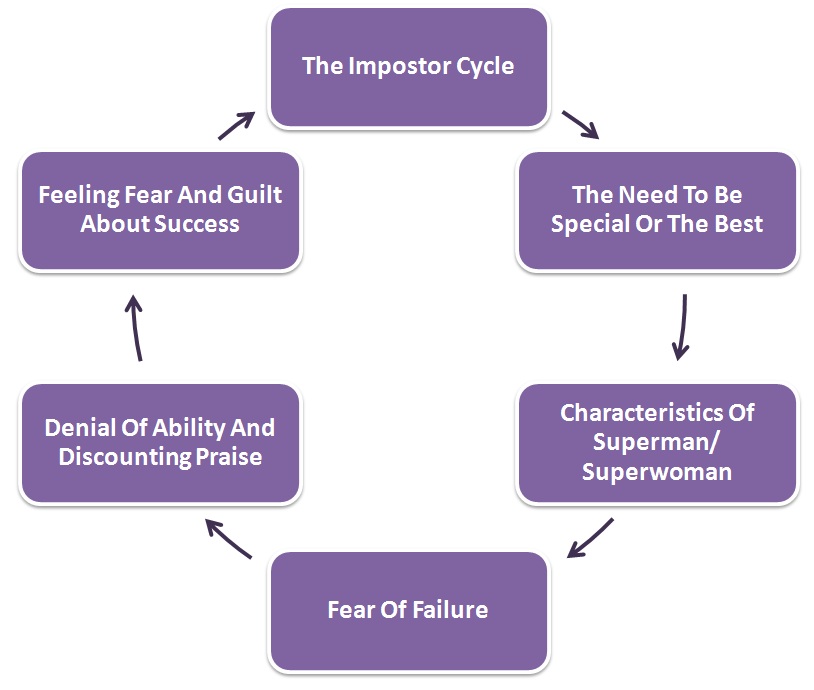
By this model, for an individual to be considered to experience impostorism, at least two of these aspects have to be present.
Coping with Impostor syndrome
To begin to get past this, we need to engage in deep self reflection. Some questions that may help are:
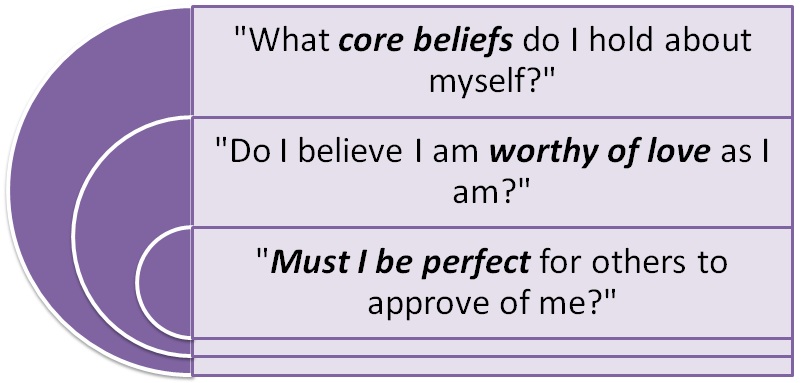
Perfectionism plays a significant role in impostor syndrome. We might think that there is some perfect “script” for conversations and that we cannot say the wrong thing. We probably have trouble asking for help from others and may procrastinate due to our own high standards. To move past these feelings, we need to become comfortable confronting some of those deeply ingrained beliefs we hold about ourselves. This can be hard because we might not even realize that we hold them, but here are some techniques we can use:
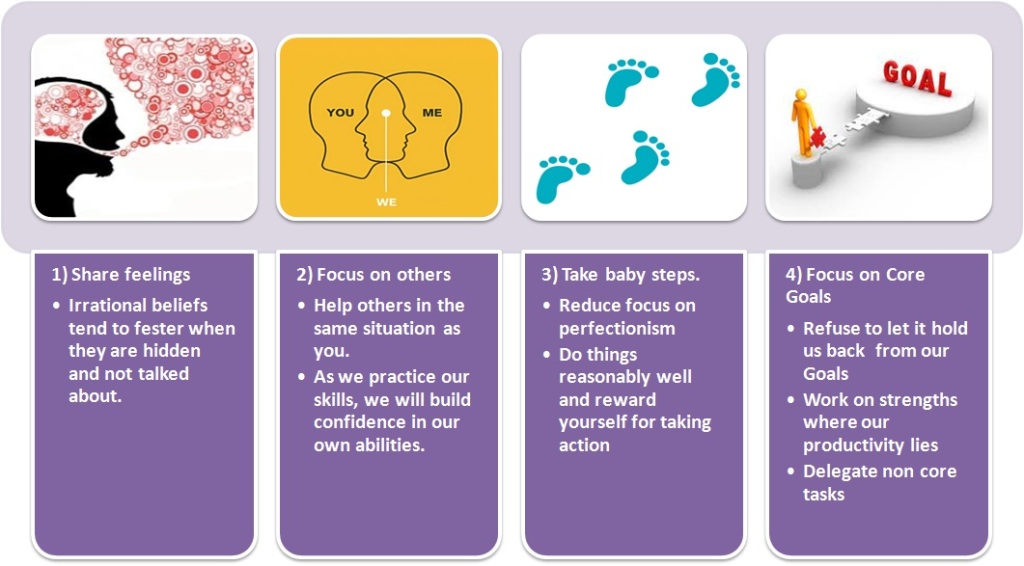
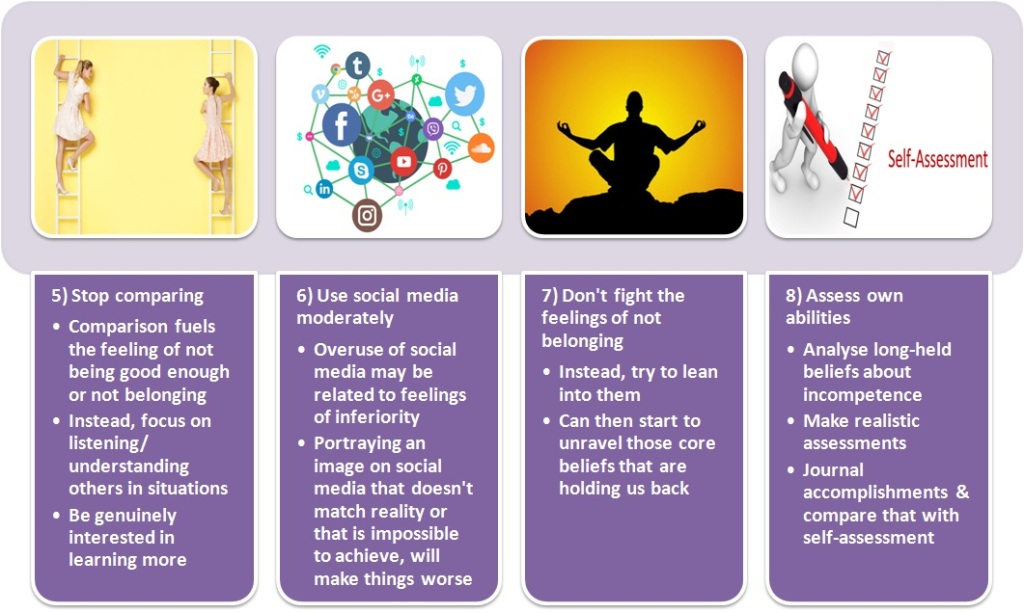
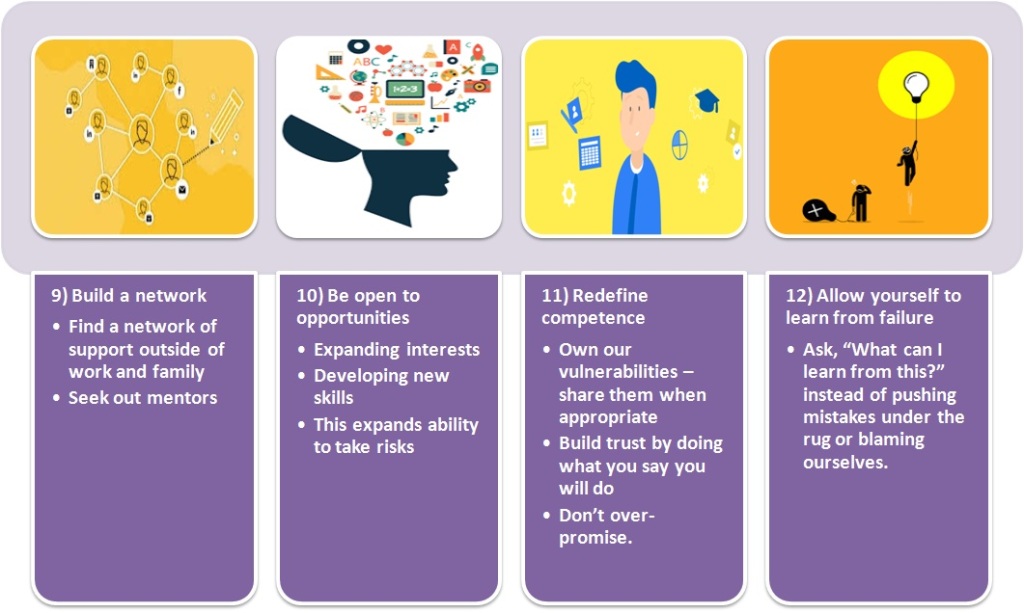
Rewire Your Brain
Small changes are great, but it’s the deeper changes that have lasting impact. The biggest step toward gradually breaking through impostor syndrome is to change the way our brain chemically responds to negative messages. Self-imposed limitations are the greatest barrier to change. Few ways in which we can begin to turn potential self-limiting challenges into strengths – and train our brain to make new, more productive connections may be:
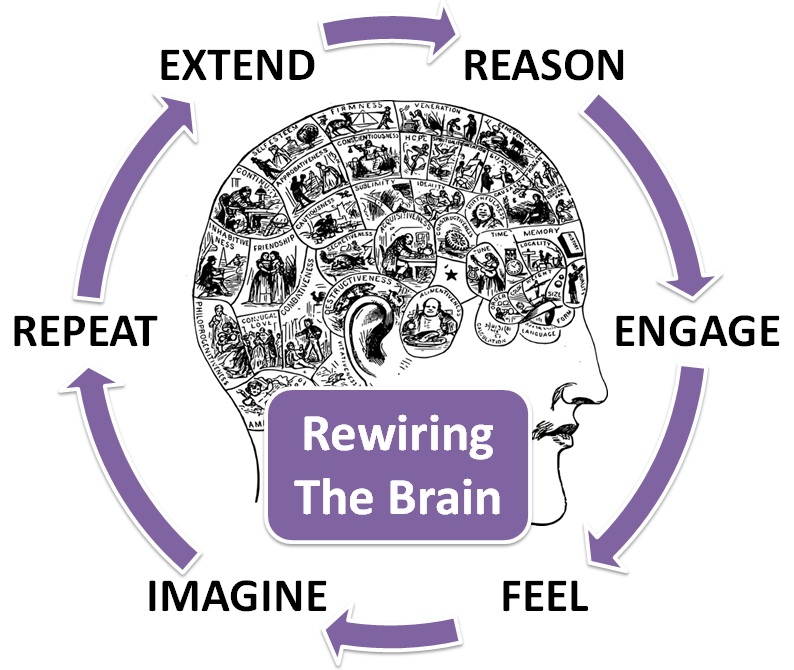
A) Learning how to sit in inquiry: . . . . . . . . . . . . Turning questions into curiosity: Instead of just asking “Why did that happen?” ask, “How could it be different next time?” Use of solution-focused thinking such as, “What stopped me from making this mistake this time, and how can I practice more of that skill?”, etc. Identify our stronger skills so that we can build on them rather than repeat mistakes.
B) Practicing periods of useful reflection: . .. . . . Ruminating on issues does not solve anything, or everything would be fixed. Worries are just made-up stories. Attaching facts to worries in order to gain insight and a fresh perspective helps. When we feel a judgment popping up (which will often be subjective), ask ourselves, “What are the facts?”
C) Use of “and” instead of “but” to weigh things more evenly: . . . . . . It’s all about the words we use. Most of the time, replacing “but” with “and” will lend a fresh perspective. Practice of not speaking in absolutes. Turn “I always…” into “I sometimes…” and we will literally change our brainwaves.
D) Post reminders of past successes: . . . . . . . Hang our degrees, accolades and thank-you cards where we can see them, so that we are constantly reminded of the times we performed well in the past. We all need signposts to remind ourselves as we get caught up in our daily work. Let them become our pep talk and reminders of our brilliance, especially before important meetings or conversations.
Practicing a more mindful, inquisitive approach to impostor syndrome can go a long way toward alleviating its power over us in the workplace. True change begins on a personal level, but its effects need to be taken seriously at an organizational level as well.

Content Curated By: Dr Shoury Kuttappa.

